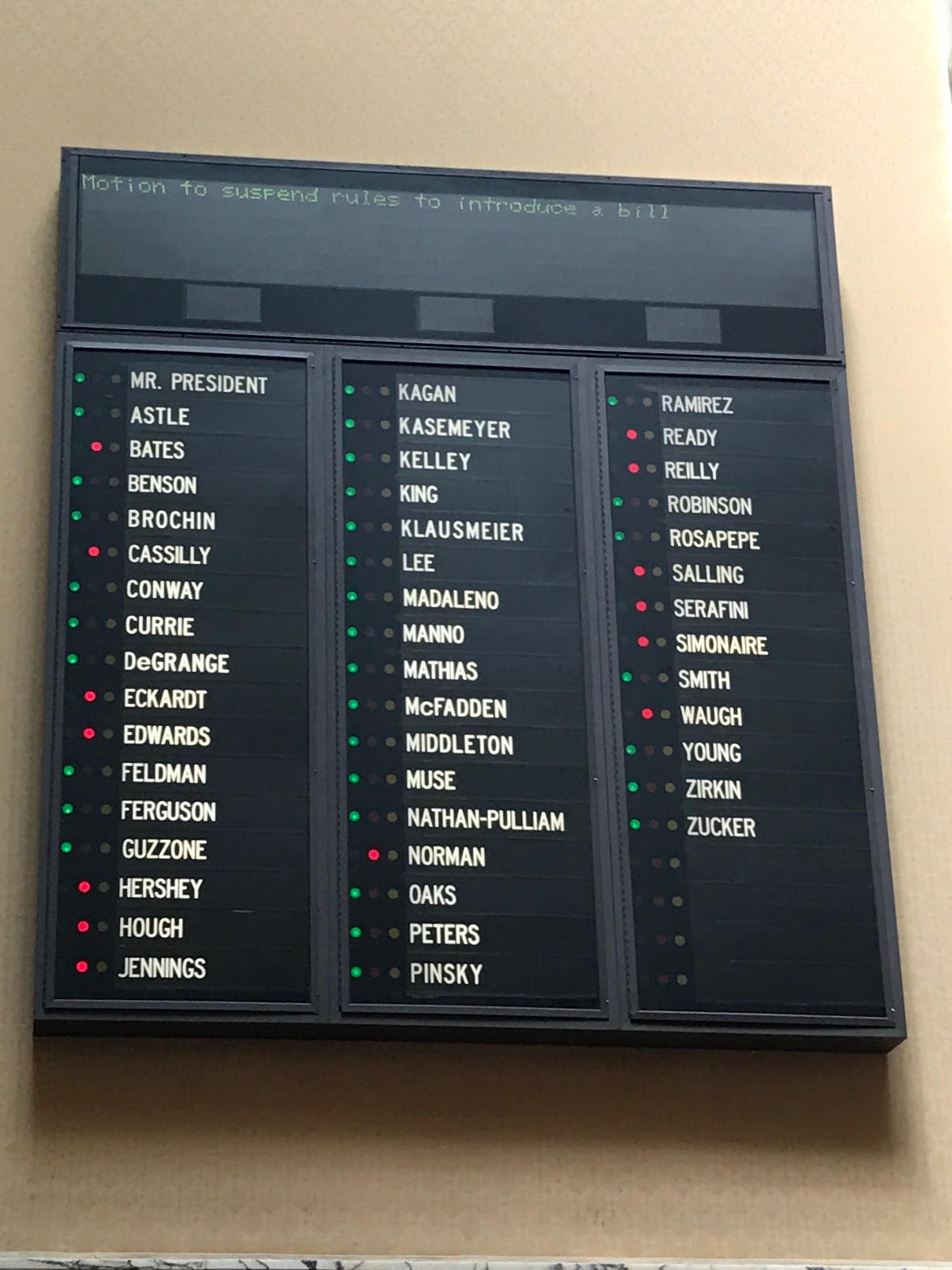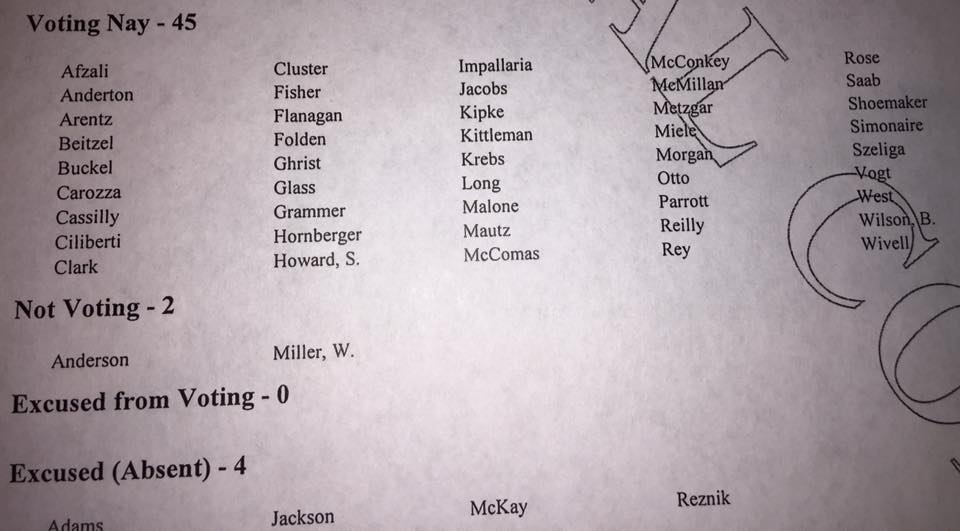 Vote to Allow Late Introduction of Internet Privacy Bill
Vote to Allow Late Introduction of Internet Privacy Bill
Yesterday, Adam Pagnucco reported how Republicans in the House of Delegates voted narrowly to prevent the late introduction of a bill by Del. Bill Frick (D-16) designed to protect companies from selling your internet records to anybody, including scammers. Frick introduced this bill in the wake of action by the Republicans in the U.S. Congress to do away with these protections.
Good news today from the Maryland Senate.
On a party line vote, or at least what looks like one based on my eyeballing of the above vote, Senate Democrats pushed successfully to allow the late introduction to the bill and to send it immediately to the Senate Finance Committee for review.
The bill was introduced by Sen. James Rosapepe (D-21) and cosponsored by Sens. Lee, Astle, Benson, Conway, Currie, Feldman, Ferguson, Guzzone, Kagan, Kasemeyer, Kelley, King, Madaleno, Manno, Mathias, McFadden, Middleton, Muse, Nathan-Pulliam, Oaks, Peters, Pinsky, Ramirez, Robinson, Smith, Young, and Zucker.
This list of cosponsors includes the entire Montgomery delegation. Indeed, it includes all Senate Democrats, except, Sens. Brochin, Ferguson, Klausmeier, Miller, and Zirkin. All five voted to move forward with the bill.

